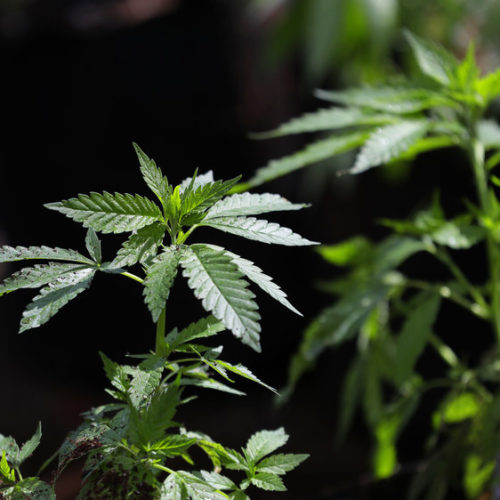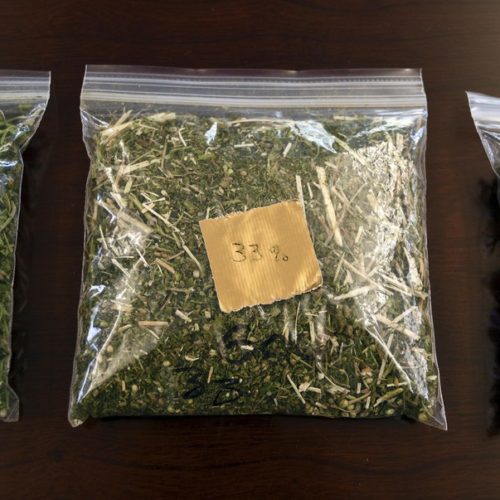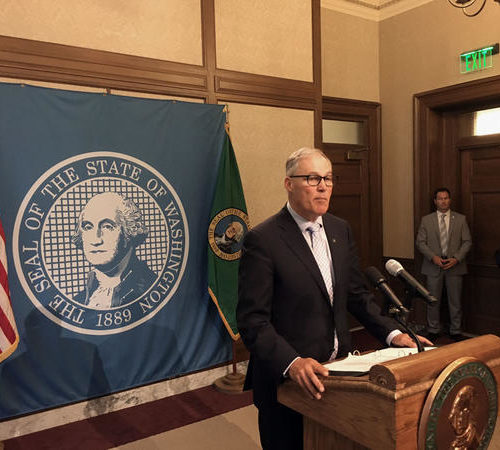
Washington Lawmakers Move One Step Closer To Vacating Misdemeanor Marijuana Convictions
Read On
BY RACHEL LA CORTE / AP
Tens of thousands of people who were previously found guilty of misdemeanor marijuana possession charges could see their convictions vacated under a measure passed Monday by the Washington Senate.
The bill passed on a 29-19 vote and now heads to the House for consideration.
Sen. Joe Nguyen, a Democrat from White Center who sponsored the measure, said that the convictions were “part of a failed war on drugs that disproportionally impacted communities of color and low-income folks.”
“We should right the wrongs of the past,” he said.
The vote comes two months after Gov. Jay Inslee announced his plan to pardon people convicted of possession charges, and more than six years after Washington voters approved the legalization of adult use of recreational marijuana. As of Monday, the governor’s office said that 17 pardon orders had been signed and two were awaiting Inslee’s signature.
Under current law, a sentencing court already has the discretion to vacate an applicant’s misdemeanor conviction record, except in several circumstances, including where criminal charges are pending against the person, fewer than three years have passed since they completed their sentence, or if they’ve been convicted of a new crime since the date of conviction.
The measure that passed the Senate Monday provides an exemption from those circumstances for adult marijuana misdemeanor possession cases.
The governor’s pardon plan is an expedited process that would allow people to apply for and receive a pardon without having to hire a lawyer or go to court. But to be eligible the conviction must be the only one on their record, and it only handles convictions between Jan. 1, 1998 and Dec. 5, 2012. About 3,500 people in the state are estimated to qualify under those requirements.
The Senate measure impacts many more people, with the Washington State Patrol estimating more than 68,000 misdemeanor marijuana convictions in its database qualifying under the bill.
Republican Sen. Mike Padden of Spokane Valley said he was concerned that the bill doesn’t take into account the possibility that some people who were convicted of a misdemeanor possession charge were able to bargain down their charges under a plea agreement.
“This is just too broad of a brush that we’re using in this case,” he said.
Inslee spokeswoman Jaime Smith in an email said that governor is supportive “of this effort to bring fairness to those with marijuana convictions.”
“It’s an important next step to the executive action he took earlier this year,” she wrote.
Copyright 2019 Associated Press
Related Stories:

U.S. House Passes Landmark Bill On Marijuana Business Banking, Fate Uncertain In Senate
The U.S. House on Wednesday passed a landmark bill aimed at helping the fast-growing legal cannabis industry. Backers of fully legalizing marijuana said the 321-103 vote in favor of the so-called “SAFE Banking Act” is a key victory in their drive to bring the drug out of the legal shadows.

Federal Legalization Of Hemp Creates Confusion For State And Local Police
Federal legalization of hemp arrived in the U.S. late last year and expanded an industry already booming because of the skyrocketing popularity of CBDs, a compound in hemp that many see as a health aid. But now, just a few months after Congress placed the marijuana look-alike squarely in safe legal territory, the hemp industry has been unsettled by an unexpected development.

Jay Inslee To Pardon Washington Marijuana Convictions Dating Back To 1998
Governor Jay Inslee will pardon people under his new Marijuana Justice Initiative. People convicted of minor marijuana possession in Washington can now have their record cleared.
















